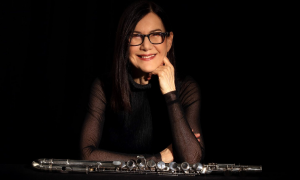Home » Jazz Articles » Interview » Bobby Zankel: Peaceful Jazz Warrior
Bobby Zankel: Peaceful Jazz Warrior
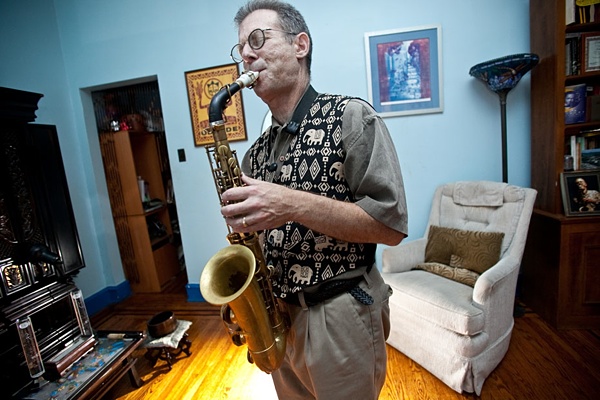
Zankel apprenticed with legendary pianist

Cecil Taylor
piano1929 - 2018

Rudresh Mahanthappa
saxophone, altob.1971

Steve Coleman
saxophone, altob.1956
Zankel's late, great teacher and mentor was

Dennis Sandole
b.1913
Chuck Anderson
guitarb.1947

John Coltrane
saxophone1926 - 1967

Pat Martino
guitar1944 - 2021

James Moody
woodwinds1925 - 2010

Cecil Taylor
piano1929 - 2018

Ornette Coleman
saxophone, alto1930 - 2015
Zankel resides in the heart of West Philadelphia, not far from the University of Pennsylvania campus. Like the Left Bank of the Seine (in this case, the Right Bank of the Schuykill), the creativity that comes out of this diverse neighborhood of working poor, writers, students, professors, musicians, artists and scientists is extraordinary. Its residents have included Margaret Mead, Paul Robeson and Marian Anderson, as well as members of the jazz pantheon such as John Coltrane,

McCoy Tyner
piano1938 - 2020

Heath Brothers
band / ensemble / orchestra
Gerry Mulligan
saxophone, baritone1927 - 1996
Chapter Index
- Origins and Youth
- The Avant-Garde in New York
- With Cecil Taylor at the University of Wisconsin and Antioch
- The Move to Philadelphia
- Learning from Master Teacher Dennis Sandole
- The Warriors of the Wonderful Sound
- Listening to and Appreciating Advanced Jazz
- About Jazz Writers and Critics
- Other Pursuits and Interests
- The Avant-Garde in New York
Origins and Youth
All About Jazz: We'll start out with the notorious "desert island question": Which recordings would you take with you to that island?
Bobby Zankel: John Coltrane at the Half Note (Audio Fidelity, 2005), which was released three years ago. Maybe Ornette Coleman's Science Fiction (Columbia, 1972), with

Don Cherry
trumpet1936 - 1995

Dewey Redman
saxophone, tenorb.1931

Bobby Bradford
trumpetb.1934

Ed Blackwell
drums1929 - 1992

Billy Higgins
drums1936 - 2001

Charlie Haden
bass, acoustic1937 - 2014

James Brown
vocals1933 - 2006

Thelonious Monk
piano1917 - 1982
AAJ: Any others with sax players?
BZ: Well, maybe I should have mentioned the one with Trane at the Vanguard, [Live at the Village Vanguard (Impulse!, 1962)], that had

Eric Dolphy
woodwinds1928 - 1964

Charlie Parker
saxophone, alto1920 - 1955

Jimmy Lyons
saxophone, alto1933 - 1986

Sonny Rollins
saxophoneb.1930

Miles Davis
trumpet1926 - 1991

Herbie Hancock
pianob.1940

Wayne Shorter
saxophone1933 - 2023
AAJ: So you grew up in Brooklyn, New York, right?
BZ: I was just a kid in Brooklyn, and then I went to high school in Rockville Center, Long Island. My family moved out to the suburbs, as many people did.
AAJ: What years were you in Brooklyn?
BZ: The mid-1950s.
AAJ: That was when modern jazz began its upward momentum. So, what was your childhood like, and what were your early musical exposures?
BZ: OK, there are a couple of levels. One is when we got our first stack of LPs. My father knew someone at RCA, and we got a box of Harry Belafonte records. Then there was Little Richard, rock 'n roll, under Alan Fried's banner, the Coasters with those great tenor solos. And Prokofiev's "Peter and the Wolf." My parents tried to expose me to some highbrow music.
AAJ: Did they sense that you had talent as a kid?
BZ: They weren't artsy folks. They grew up in the Depression and were very practical people. In school, in the second or third grades, you could only begin on string instruments, so I got a violin, but it wasn't really "manly" enough for me, so then I wanted a saxophone. But you had to get a clarinet, so I played it throughout junior high and high school in the bands and so on. I didn't consider myself a "musician" at that time, but I did love music. I got a lot of stuff from the library and the radio. At the local library they had Ornette Coleman's The Shape of Jazz to Come, and I could hear that right away.
I was more into sports, politics, poetry or whatever. But I remember reading Downbeat and buying my first Coltrane record with

Eric Dolphy
woodwinds1928 - 1964
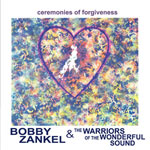 AAJ: Your mentioning Dolphy, who often played bass clarinet, made me wonder if you have ever wanted to go back to your original instrument.
AAJ: Your mentioning Dolphy, who often played bass clarinet, made me wonder if you have ever wanted to go back to your original instrument.BZ: No, in truth I never liked the clarinet—I found it hard for me to play. Few can speak on it and sing on it, except for Eric Dolphy, who was such a gifted person technically. With the clarinet, the instrument tends to dominates the player. With the saxophone, your personality can come out in many ways. Actually, I had a horrible experience on the bass clarinet. Some years later, when I was working under Cecil Taylor, his great alto player

Jimmy Lyons
saxophone, alto1933 - 1986
AAJ: Are there any recordings using the alto clarinet?
BZ: There's a guy in New York named

Mark Whitecage
saxophone, altob.1937

Hamiet Bluiett
saxophone, baritone1940 - 2018
AAJ: So, when you were young, did you go to the clubs and concerts in New York to hear the music?
BZ: No, not when I was very young. That's one of my greatest regrets. One of the great events that I was supposed to attend but missed was a concert that Coltrane and others did in 1966 called "Titans of the Tenor." They had

Pharoah Sanders
saxophone, tenor1940 - 2022

Albert Ayler
saxophone, tenor1936 - 1970

Charlie Rouse
saxophone, tenor1924 - 1988

David Izenzon
bass, acoustic1932 - 1979

Charles Moffett
drums1929 - 1997

Johnny Coles
trumpet1926 - 1997

Dexter Gordon
saxophone, tenor1923 - 1990

Leon Thomas
vocals1937 - 1999

Larry Young
organ, Hammond B31940 - 1978

Joe Henderson
saxophone1937 - 2001

Jackie McLean
saxophone, alto1932 - 2006

Booker Ervin
saxophone, tenor1930 - 1970

Sun Ra
piano1914 - 1993
 The Avant-Garde in New York
The Avant-Garde in New YorkAAJ: It's interesting that you gravitated very early to jazz that was pushing the envelope. Most musicians seem to have first listened to a lot of the standard stuff before going on to the outer reaches.
BZ: It was pushing the envelope, but it was what was very popular as well. You know,

Cecil Taylor
piano1929 - 2018

Lee Morgan
trumpet1938 - 1972

Lou Donaldson
saxophone1926 - 2024
AAJ: Are you saying that Cecil and Ornette and the post-1962 Trane were part of the mainstream?
BZ: No, they were clearly to the far left, but avant-garde wasn't a dirty word.

Freddie Hubbard
trumpet1938 - 2008

Tony Williams
drums1945 - 1997
AAJ: And the music of the time reflected that conflict.
BZ: Absolutely. The seriousness and emotional power of that music. You know, when you listen to

Horace Silver
piano1928 - 2014

Lee Morgan
trumpet1938 - 1972

Joe Henderson
saxophone1937 - 2001
AAJ: You're rounding off the picture of jazz at that time. So, when you started your career, you were playing with Cecil Taylor's group?
BZ: Yeah, what happened was that I got an alto sax, and I was at the University of Wisconsin, and I realized I didn't want to be a lawyer or a politician. I really wanted to be a musician and play the saxophone. So I dropped out of college, went back to Brooklyn, heard a ton of music, and got into a summer program at Berklee School of Music in Boston. I used the money I earned from working at the post office, but when September came around, I wanted to go to Berklee, but my parents wouldn't support that. They wanted me to go back to a regular college and get a full education.
So I went back to Wisconsin, which didn't even have a regular saxophone teacher until Fred Hemke came in my second year as a music major. But when I got into their music school, they told me that Cecil Taylor was going to be coming out there as artist-in-residence. They thought it was only going to be for one semester. I was taken aback, because I had heard Cecil many times in New York, at a Slug's on Third Street, between Avenues C and D.

Sun Ra
piano1914 - 1993
With Cecil Taylor at the University of Wisconsin and Antioch
BZ: I hooked up with Cecil Taylor through the intercession of a great drummer named
Theodore George Brown
saxophone, tenorb.1927

Sonny Rollins
saxophoneb.1930
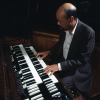
Melvin Rhyne
organ, Hammond B31936 - 2013

Abdullah Ibrahim
pianob.1934

George Russell
composer / conductor1923 - 2009
And I said, "OK, That solves that." At that stage of his life, Cecil was so creative and energetic. And serious. You could stand outside his practice room, and he would go at it three straight hours at a stretch, playing the same patterns over and over, varying the tempo, the articulation. Sort of Hanonesque [reference to the Hanon piano books]. People have no idea what a master of the instrument he was, and what he had to go through to get to that point.
As soon as he returned for the next semester, he organized an ensemble, and we rehearsed 4 days a week for a whole year with new music almost every single day. After each rehearsal, most of the guys would leave, but Cecil would just start playing and a few of us would hang in, and play for hours.
AAJ: Where was this?
BZ: At the University of Wisconsin in Madison. They brought him back there to teach the second year. And there were guys from Chicago and from Boston, who weren't even students, who just wanted to be part of this thing. And by the springtime, we did a little tour of some colleges. It was incredible, he had drummer

Andrew Cyrille
drumsb.1939
 AAJ: What size group did Taylor have when you did the tour?
AAJ: What size group did Taylor have when you did the tour?BZ: It was about 15.
AAJ: A big band?
BZ: Yeah. And then we did a concert at Hunter College. The first half was Jimmy, Sam, and Andrew; and then he had us do the big band thing. I know that Cecil paid for us out of his pocket, which inspires me to this day. And I remember playing, and there's Ornette Coleman sitting in the first row. And I found out later that

Michael Brecker
saxophone, tenor1949 - 2007
AAJ: It sounds like for you in those days, it was an intense, thrilling cauldron of apprenticeship.
BZ: Every day was really exciting. I wanted to go to New York and play, but I didn't then, because I couldn't bear to miss a day with Cecil. If you took off, you might miss some new music. We were young guys, and not that great as players, but we had an understanding of the concepts.
The Move to Philadelphia
AAJ: Were there other leaders besides Cecil Taylor whom you worked with?
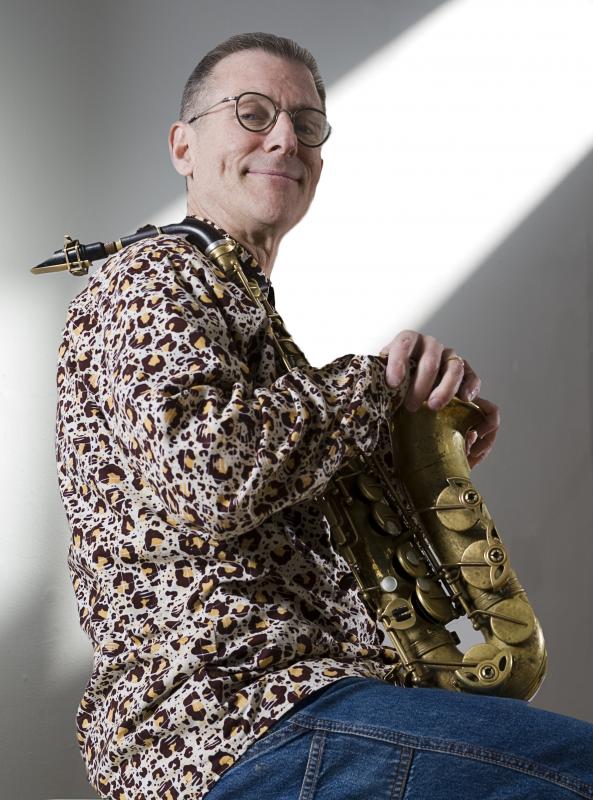

Johnny Hodges
saxophone, alto1907 - 1970

Duke Ellington
piano1899 - 1974

William Parker
bassb.1952

Rashid Bakr
drumsb.1943
So, then my daughter's mom got money to come to Penn for a PHD anthropology and another daughter was on the way. I was very committed to my daughter's happiness and offered to come with her. I thought it was temporary because it was not normal career move for a musician to move from New York to Philadelphia. But, surprisingly, I started meeting people in Philly who were playing all kinds of different stuff. And they liked the way I played, and I met all those older guys who had been around Coltrane, and it was really inspiring. People like

Odean Pope
saxophoneb.1938

Freddie Green
guitar, acoustic1911 - 1987

Tyrone Hill
trombone1948 - 2007

Dennis Sandole
b.1913AAJ: Before you get to him, because I really want to focus in on Sandole, who were some of the key influences you encountered in Philadelphia at that time?
BZ: The main one was Odean Pope. He was teaching then at a government-sponsored program called "Model Cities," and he was very nice to me. He passed on some R&B gigs to me. We did a Latin gig together where I played baritone sax. I felt that Odean was a monster of a player and I couldn't understand why the guys in New York never mentioned him. There was a big concert, and he played on the same stage with

Archie Shepp
saxophone, tenorb.1937

David Murray
saxophone, tenorb.1955
At the Model Cities, I also met

Tyrone Brown
bassb.1940

Max Roach
drums1925 - 2007

Horace Silver
piano1928 - 2014

Bud Powell
piano1924 - 1966
 In 1981, a great drummer named Alan Nelson, who used to play with Hannibal and
In 1981, a great drummer named Alan Nelson, who used to play with Hannibal and 
Billy Harper
saxophoneb.1943

Jymie Merritt
bass1926 - 2020

Max Roach
drums1925 - 2007

Steve Coleman
saxophone, altob.1956
Edgar Bateman
drumsb.1929
These guys were so encouraging, and that led me to meet a whole other generation. I met

Uri Caine
pianob.1956

Ralph Peterson
drums1962 - 2021

Jamaaladeen Tacuma
bassb.1956

Calvin Weston
drumsb.1959
So just here in Philadelphia, I've been able to meet so many great musicians. Through Ralph, I formed a wonderful working relationship with the singer composer

Ruth Naomi Floyd
vocals
Gary Thomas
saxophoneb.1961

Terri Lyne Carrington
drumsb.1965

Reggie Washington
bassb.1962

Craig Handy
saxophoneb.1962
Learning from Master Teacher Dennis Sandole
AAJ: Now, let's get back to Dennis Sandole. I've picked up bits and pieces about him from various musicians who consider him a genius, yet he remains almost a mystery to many people.
BZ: He is a mystical figure.
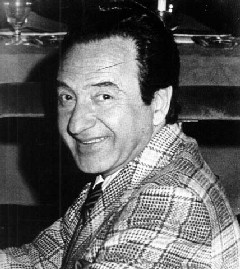 AAJ: So there you are in the firmament with all these guys doing new things, but yet Sandole pulls you into his sphere. And you're not alone—there's Pat Martino, John Coltrane, James Moody, Chuck Anderson, and many talented and innovative players. They all came to Sandole. But I can't quite get what it is that they got from him.
AAJ: So there you are in the firmament with all these guys doing new things, but yet Sandole pulls you into his sphere. And you're not alone—there's Pat Martino, John Coltrane, James Moody, Chuck Anderson, and many talented and innovative players. They all came to Sandole. But I can't quite get what it is that they got from him.BZ: That's great! And that probably frames a question that people all over the world probably have. Even in New York, I met people who knew Sandole, and I read that Coltrane studied with him. So when I moved to Philly, one of the first things I did was to look up Sandole in the phone book, but I couldn't find him! It turned out later that he lived in Springfield in the suburbs, and even though he taught in South Philadelphia, he had no phone listing there.
Dennis taught about tonal relationships both vertically and horizontally. He was an Italian guy from South Philly who came up in the late '30s and '40s, and sometimes called himself "Denicio." He was what you call an autodidact, that is, he taught himself music, and as a guitarist, he had the whole orchestra at his fingertips. In terms of making a living, he played guitar with Charley Barnett and the

The Dorsey Brothers
band / ensemble / orchestraBoyd Raeburn
b.1913He was also a master of the art of teaching. He really knew how to impart information. And he was totally non-judgmental, and not about any particular style. He was about tones and about creativity. So he taught tonal movement, and he could do it from the points of view of chords and melody. He could make you hear lines, and the way he would make you hear it is that he would write out these short exercises that would illustrate certain ideas. It's just like if you wanted to teach a child one plus one, you could give him one apple and then another apple, rather than deal with numbers which are an abstraction.
So what Dennis would do is, rather than telling you that this tone can go with that tone, he would write out these exercises, and then you'd have to memorize in one key and play them in all twelve keys. He would say "barbells on the ears." Rather than telling you what worked, he would put it in your fingers and your ears. And each student would respond differently, so he would take them in different directions. Like certain notes don't usually go with some chords, but under some circumstances they might. So then you'd have to play through that in all the keys, so you'd have to hear it and get it in your fingers. So he was expanding your vocabulary.
Some people take Charlie Parker's solos and play them all over the horn. So you learn Charlie Parker's language, and that's great. But what Dennis would do is give you, every week, something you hadn't heard before. We did some stuff from records, but Dennis would write four bars out, and you could spend hours trying to get it. You'd only be in his office maybe 20 minutes. Most of the work you did at home.
He was different with every student. With me, he saw that I was interested in writing, so he had me get orchestration and counterpoint books. He had me take a chapter or two and outline it and read back what I had written. He made me learn it myself. He really pushed me writing-wise. I'll never forget when I was with him a couple of years, and he made me write out this little eight bar figure, and I related it to Stravinsky. And he said, "Yeah, but what you wrote is better than Stravinsky." He made you feel great. And he did that in away with all of his students. He would make you feel that you were the special one. And then the next guy would go in, and he was the special one. He would kick your butt with that material. I got so caught up in it, that I stayed up nights working on it. It was such an exciting time. Then, after a while, I got caught up doing gigs and recordings, but I always wanted to continue learning from him. And I studied with him until the end of his life.
AAJ: You portray the experience so richly, I could almost visualize myself being in the room with him. He sounds like a remarkable teacher who literally made musicians bring out their true potential.
 BZ: And if you don't believe me, he has a couple of recordings- very few. One was on Fantasy called The Brothers Sandole (Fantasy, 1999), with his brother Adolph, who was a fine teacher too but not what Dennis was doing. You can see how talented Dennis was from the guys on his records:
BZ: And if you don't believe me, he has a couple of recordings- very few. One was on Fantasy called The Brothers Sandole (Fantasy, 1999), with his brother Adolph, who was a fine teacher too but not what Dennis was doing. You can see how talented Dennis was from the guys on his records: 
Art Farmer
flugelhorn1928 - 1999

James Moody
woodwinds1925 - 2010

Teo Macero
producer1925 - 2008
AAJ: In addition to Sandole and Cecil Taylor, have you had any other serious mentors?
BZ: In fact, I guess my greatest fortune has been in the area of mentors—I have been really blessed. In 1999 I was introduced by pianist Joe Locandro to Ornette Coleman—For about four years, I went up to Ornette's loft maybe monthly and he generously shared so many of his ideas about music and life. His approach, which he named harmolodics, is extremely personal as he proved with 60 years of brilliant compositions and improvisations. Ornette's mentorship was totally profound—he showed me things on paper and most often through the horn. Mentors are extremely important in life and art: animals have parents, but only humans can form the special bond of mentor and disciple.
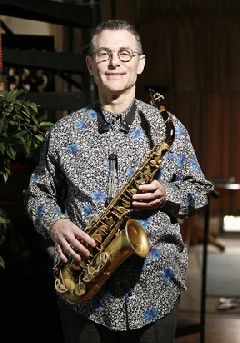 The Warriors of the Wonderful Sound
The Warriors of the Wonderful SoundAAJ: For some reason, when you were talking about Sandole's emphasiz on tonality, your big band, The Warriors of the Wonderful Sound, came to mind.
BZ: Oh, yeah; Sandole inspired me to write for big band, and he gave me the tools to hear that stuff.
AAJ: So, what led you to start a big band, knowing that they are notoriously difficult to get together and keep going, given all the musician's commitments and the shortage of paid big band gigs. When did you start the Warriors?
BZ: Between 1985 and 1992, I was fortunately able to get some grants. And I did a couple of multimedia projects, some with dancers, some with visual artists, because that's what the grants paid for. I did it with eight-piece groups. The first record I did was from a project with Steve Rowland, the radio producer, and photographer about the city of Philadelphia. I was able to get

Johnny Coles
trumpet1926 - 1997

Sumi Tonooka
pianob.1956

Tyrone Brown
bassb.1940

Craig McIver
drums
John Blake
violin1947 - 2014
So I started to accumulate this music for a larger group. But I always went out of my way to use guys who were more experienced than me who could teach me something, and make it sound good.
Then around 1991, a young alto player named Daniel Peterson approached me when he put on a festival called "Collective Voices." He asked me if I could do something for a big band, and he said, "Well, I'll get you a big band." I had some trepidation, but it was an exciting opportunity to get some young guys to see what they could do. I took players of whatever instruments I could get, so initially we had four saxophones, two trumpets, and a trombone, and I brought my own drummer, Craig McIver, and I got guitarist Rick Iannacone and bassist

Dylan Taylor
bassSo we did this festival at the Tritone club on South Street, and it was lots of fun, and I Thought, "Let me go for this," And one of the smartest things I did was limit it to once a month. I didn't want to burn out. And we're coming around to our tenth anniversary.
We rehearse right here at my home. I was able to purchase the home where you and I are doing the interview from winning a Pew Fellowship for composition in 1996. The panel included a Pulitzer Prize winner and was not simply jazz. So eventually, what I had done for years for love came back to me in the form of this house! It's such great fortune, but it reminds me that positive, compassionate action to improve the world can bring good things to yourself as well. I'm a Nichiren Buddhist—I became a Buddhist joining the Soka Gakkai in 1973. And Buddhist practice is based on Nam Myoho Renge Kyo—the law of cause and effect. Sometimes you can't see it in the short term, but every good cause is rewarded. To put it simply, you get the right effect. Creatively, I've tried to impact the world in a positive beautiful way. So I have this house, and now I can rehearse the big band in my living room.
AAJ: Doesn't that disturb the neighbors?
BZ: No, they're jazz lovers.
AAJ: Now, the music The Warriors play is not the average big band chart you pick up at a music store. Most of the music consists of your originals, which are quite complex. For example, you wrote "Ndura," a beautiful piece based on Bambuti [Pygmy] philosophy. But in places it's like a hornet's nest of notes. Now the guys must have been totally unfamiliar with it at first. So, you bring in the charts, and then, how do you prep them? What do you do to get them to play it, the way you want it?
BZ: Well, in fact I'm not much into being a conductor. The music I write is extremely intricate rhythmically, and things have to fit together in very precise ways. But the guys are good readers. For example, this week, we played a piece I wrote in honor of the great composer,

Bill Dixon
trumpet1925 - 2010

Tom Lawton
pianoAAJ: So, a lot of the composition is between the lines.
BZ: Right. And that's the benefit of keeping a band together over an extended time period. It's like keeping a basketball team together: the guys learn to have a little ESP with each other. They know what I'm intending based on shared experience.
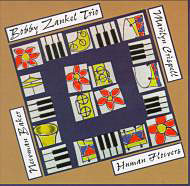 Listening to and Appreciating Advanced Jazz
Listening to and Appreciating Advanced JazzAAJ: How do you want your audience to listen to The Warriors? What I mean is that, often when people go to hear so-called "new music," they don't quite get it, and they sort of absorb it anyway, but they might miss the composer's intent entirely. So, for your really new, creative, and complex work that you do with the Warriors, what mindset would you like your audience to come in with?
BZ: I think, with The Warriors, because of the rhythmic thrust of the music, I never worry about it being above people or getting too abstract. If you have a groove like ours, I mean we have a tremendous swing in the music, then you can do most anything. Like in a lot of my pieces, I have a bunch of 12 tone things, frequent uses of tonality and things that might be called dissonant, but if there's a groove, that's the bottom line. If your heart's not beatin,' there's a problem. But if you have a beat, they'll listen. My problem is about how to get more people to come in the first place.
AAJ: But maybe that's my point. If they don't know how to listen, they won't come. This is a big concern with the whole jazz scene today, as to why it's not attracting larger audiences. One reason may be that it's advanced quite a bit, and the masses don't quite get it. Like, personally, I love The Warriors of the Wonderful Sound. I think the groove is incredible, as you say, and your musicians are out of this world. I love to hear them play. But the music tends to get very dense. And it stays dense for long periods of time. Three or four guys might be improvising at the same time, each in his own way, and the backdrop is rocking, and it's just going on and on like that. And then I'm thinking, "What's the message here? What can I hang my hat on?" Now, I'm aware of my own listening limitations, and I admit that I might not be able to get what a more sophisticated listener can get, so I'm not judging anyone. My question is: when the serious but, perhaps, limited listener such as myself gets into that density and is looking for something to lean on, what does he do?
BZ: [Chuckles] I really understand what you're saying, and I don't do that as much as I used to in my music. Cecil Taylor used to play really dense, and sometimes he would get booked for festivals with, say,

Oscar Peterson
piano1925 - 2007
And for me, I feel the same way. I want people to like it. But I want more people to like it, so I don't want the density to go on too long. I'm more careful about that in my recordings than in live gigs. But I apologize if I neglect a segment of the audience. I believe I have a gift to be able to transmit feeling when I play and sometimes this might require digging very deep but I have to go with it and many people want to go too.
AAJ: I don't think you need to apologize. But, for example, when I was a kid, my aunt used to listen to Bach on WQXR, a classical radio station in New York City. I thought that music was so weird. Then, one day, I remember it clicked in. Suddenly, I was enjoying Bach, almost in a finger-snapping way. Similarly with advances in jazz. I think we've neglected to get it to click in for the less avant-garde audiences. We've got to be able to talk to them and help them along with their appreciation. We need to help them understand the gestalt, the pattern, that makes it click in for the musicians and, hence, the listeners.
BZ: I think it's important to hear this new music live, being in the room where you can really become part of the experience. In the '60s and the '70s, people would say, "Well, that music might be fun to play, but it's not fun to listen to." But

Duke Ellington
piano1899 - 1974
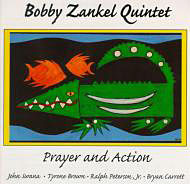 My point is that it's not a matter of how advanced or dense it is, it's whether it's good or bad, period. When Trane and Pharoah are playing far out, some might describe it as a finger scratching the blackboard, but to me it's ecstatic, it's beautiful playing. It's got that energy. It's similar to things in contemporary music. Like the composer Xenakis—very similar to him. Or some of Stockhausen and Boulez.
My point is that it's not a matter of how advanced or dense it is, it's whether it's good or bad, period. When Trane and Pharoah are playing far out, some might describe it as a finger scratching the blackboard, but to me it's ecstatic, it's beautiful playing. It's got that energy. It's similar to things in contemporary music. Like the composer Xenakis—very similar to him. Or some of Stockhausen and Boulez.I think a lot of players took unfair advantage of the conceptual gains that Cecil Taylor, and Coltrane, Sun Ra, and

Sunny Murray
drums1937 - 2017
AAJ: I think you have an excellent point, that "free jazz" is really a misnomer. It's really about wider structures and concepts, not the absence of structure. Now, getting back to The Warriors big band, someone—I forget who—made a connection between the Sun Ra Arkestra and The Warriors. And you yourself mentioned your exposure to Sun Ra.
BZ: Yeah, I went to see Sun Ra in New York quite a bit in the 1960s.
AAJ: Is there a conceptual or historical connection between the two bands?
BZ: I saw that band many, many times and loved it. I happen to be a great student of Sun Ra and admire his music. I listened to it very carefully.

John Gilmore
saxophone, tenor1931 - 1995

Marshall Allen
saxophone, altob.1924
The most personal connection that I had with Sun Ra was through a really remarkable drummer and composer named Samrai Celestial (Eric Walker). Samrai moved to Philadelphia from New Orleans in the late '70s just to play with Sun Ra and he was an important member of the band for a number of years. We met through the long time Arkestra member, trombonist

Tyrone Hill
trombone1948 - 2007
AAJ: OK, let's talk about the other saxophonist you've been joining forces with recently: Rudresh Mahanthappa. Simply put, he's a fantastic musician.
BZ: He's a great player and composer.
AAJ: So, what were you hearing in his playing that you could relate to your own to the extent that you engaged in a joint venture with him?
BZ: When I first heard Rudresh, I really liked his playing. I'm sort of a shy person, but we had a common friend, the trumpet player

Amir ElSaffar
trumpetSo, then I wanted to do something with Rudresh, and I thought of the Philadelphia Music Project grants program. I had made The Warriors a 501c3 non-profit organization in order to obtain funding for it in 2004. We're basically a cultural organization that supports modern music. I already had applied to PMP for a grant as part of the memorial to the 40th anniversary of Coltrane's death. We were gonna have it at the Church of the Advocate which Trane attended, and we were going to have Sonny Fortune be our special guest. Sonny had played with Trane at the last concert he did in Philadelphia, which was at the same church. A great idea, but unfortunately the grant was rejected.
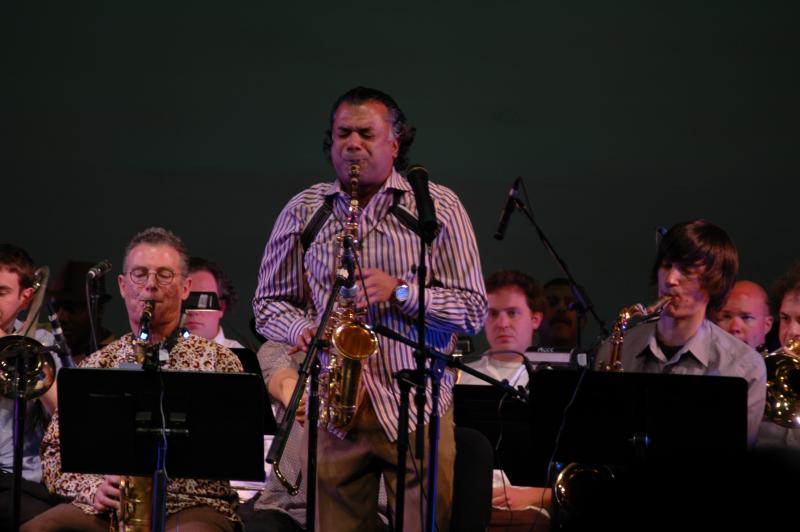
Rudresh with Zankel (seated, on left)
So, after I met Rudresh, I thought maybe I'd do better with someone from New York and very popular like Rudresh writing the music and performing it with The Warriors. So we did that—you reviewed the concert at Montgomery County Community College.
And next year, I'm doing it with

Steve Coleman
saxophone, altob.1956
We ended up with a two-year project. Actually, I just exchanged emails with Rudresh yesterday, because I also got money from the Aaron Copland Foundation to perform his piece in New York. So it's a very exciting time for me and The Warriors. And it's great for me at this stage to keep learning and growing through work with these guys. And Rudresh's thing is so unique. He's been able to incorporate music from India with his jazz thing so beautifully. And to be with Steve is of major importance.
Tags
Bobby Zankel
Interview
Victor L. Schermer
United States
Cecil Taylor
Rudresh Mahanthappa
Steve Coleman
Dennis Sandole
Chuck Anderson
John Coltrane
Pat Martino
James Moody
Ornette Coleman
McCoy Tyner
The Heath Brothers
Gerry Mulligan
Don Cherry
Dewey Redman
Bobby Bradford
Ed Blackwell
Billy Higgins
Charlie Haden
James Brown
Monk
Eric Dolphy
Charlie Parker
Jimmy Lyons
Sonny Rollins
Miles Davis
Herbie Hancock
Wayne Shorter
Mark Whitecage
Hamiet Bluiett
Pharoah Sanders
Albert Ayler
Charlie Rouse
David Izenzon
Charles Moffett
Johnny Coles
Dexter Gordon
Leon Thomas
Larry Young
Joe Henderson
Jackie McLean
Booker Ervin
Sun Ra
lee morgan
Lou Donaldson
Freddie Hubbard
Tony Williams
Horace Silver
George Brown
Melvin Rhyne
abdullah ibrahim
George Russell
Andrew Cyrille
Michael Brecker
Johnny Hodges
duke ellington
William Parker
Rashid Bakr
Odean Pope
Eddie Green
Tyrone Hill
archie shepp
David Murray
Tyrone Brown
Max Roach
Bud Powell
billy harper
Jymie Merritt
Edgar Bateman
Uri Caine
Ralph Peterson
Jamaaladeen Tacuma
Calvin Weston
Ruth Naomi Floyd
Gary Thomas
Terri Lyne Carrington
Reggie Washington
Craig Handy
Dorsey Brothers
Boyd Raeburn
Art Farmer
Teo Macero
Sumi Tonooka
Craig McIver
John Blake
Dylan Taylor
Bill Dixon
Tom Lawton
oscar peterson
Sunny Murray
John Gilmore
Marshall Allen
Amir ElSaffar
Richard Abrams
Henry Threadgill
anthony braxton
Marilyn Crispell
Hamid Drake
Fred Ho
John Cage
Comments
PREVIOUS / NEXT
Bobby Zankel Concerts
Dec
21
Sun

Bobby Zankel
Solar MythPhiladelphia, PA
Support All About Jazz
 All About Jazz has been a pillar of jazz since 1995, championing it as an art form and, more importantly, supporting the musicians who make it. Our enduring commitment has made "AAJ" one of the most culturally important websites of its kind, read by hundreds of thousands of fans, musicians and industry figures every month.
All About Jazz has been a pillar of jazz since 1995, championing it as an art form and, more importantly, supporting the musicians who make it. Our enduring commitment has made "AAJ" one of the most culturally important websites of its kind, read by hundreds of thousands of fans, musicians and industry figures every month.






 Buy Now
Buy Now







